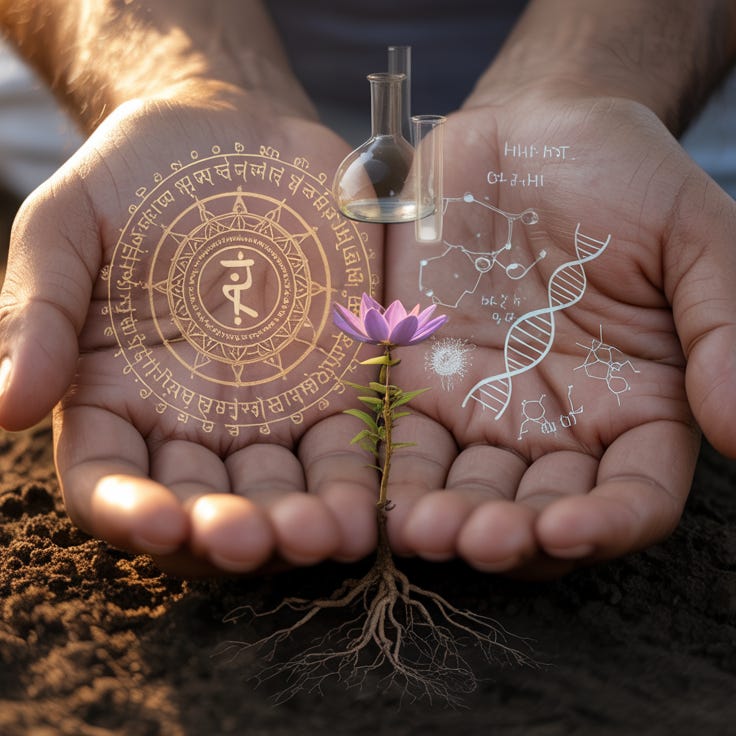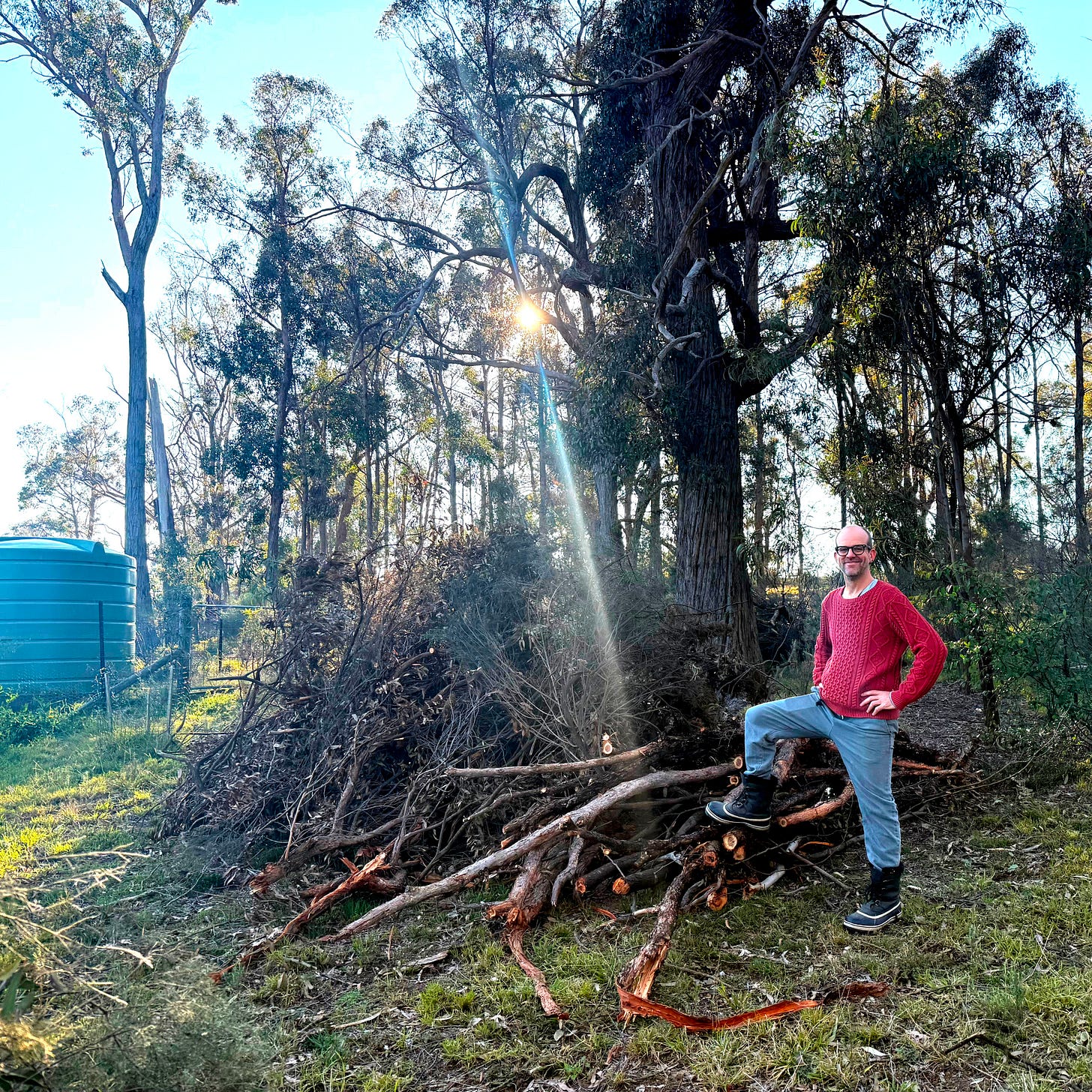Spirituality revisited
it's not so spiritual after all
I don’t know what it is about me but I like contrarian points of view. Or, failing all-out contradiction, something that is deeply counter-intuitive. There’s something that contradiction provokes that makes me feel alive.
A topic that is ripe for contradiction and counter-intuition is spirituality. My wife and I have both, in our own ways, spent our lives circling around this question. What is spirituality? And is there an answer to that question that has a material and practical effect on everyday life?
There are four major influences on my thinking in this area.
Firstly, Christianity. I spent the first thirty years of my life exploring various flavours of Christian belief and practice, from the deeply conservative to the wild and whacky.
Secondly, Friedrich Nietzsche. The German philosopher, deeply atheistic and anti-spiritual. I suppose, given my penchant for opposition and contradiction, this was an obvious leap: Christian faith to atheistic materialism.
Thirdly, scientific discovery. I have always been interested in the connections between physics, mathematics and neuroscience on the one hand, and cosmology, metaphysics and spirituality on the other.
And finally, Tantric philosophical theology. This is my most recent excursion. In particular, I have become interested in Trika Shaivism, a philosophical tradition from medieval India. I won’t go into details now, but this tradition offers a tantalising possibility for uniting these three strands into something quite contemporary, deeply spiritual but avowedly practical and material.
Which brings me to the point of this post. I’m sure my wife is going to roll her eyes when she reads this. She has heard this a million times before. But it is a point that I keep coming back to, to the point of obsession. The point is this: atheistic materialism, profound metaphysically-focused spirituality and scientific discovery might turn out to be the same thing.
In my experience, most people think about these things as opposites, or at least, as incompatible. They might not do this using these technical terms. Indeed, they might not even do this consciously. But I see it everywhere: the idea that to be spiritual, even religious, you have to somehow distance yourself from the mundane and the material, and yes, the laboratory.
So this is my counterintuitive and contradictory assertion: elevated spiritual experience and bald scientific materialism are one and the same thing.
Let me give you just one small example from the Tantric traditions of India. As I’ve delved into these traditions, I have found myself continually wondering what all of the complexity and intricacy of the spiritual practices is really about. It’s easy to get lost in the detail of meditation, contemplation, Tantric yoga, the many gods and goddesses and the intricacy of energy systems, sacred geography, yantras, mantras and so on ad infinitum.
But, if you zoom out as far as you can, and take a look at the whole spiritual system and what it is trying to achieve, I think you end up with a materialist, and even scientifically justifiable, answer.
This answer has something to do with fully experiencing your own consciousness, and deploying technologies for deepening and intensifying this experience. I think the Tantric masters were trying to describe, in as much detail as they could, this inner experience of a human being, and developing technologies for enhancing it.
In the absence of scientific descriptors like neurons firing, or the probabilistic equation for an electron’s position within an atom, or magnetism or gravity or any of the things that we take for granted today, I think they invented a heavily symbolic and deeply layered codification practice in order to describe what it’s like to think, feel and act as a human being.
It seems to me that, for the Tantric masters, spirituality was about discovering first what it’s like to be a human being, and then learning how to optimise and maximise that experience.
Yes, they come at it from a religious and spiritual perspective. But I think you can say the same thing, essentially, for Nietzsche the great atheist, the scandalous excoriator of the woo-woo, the fanciful, of the sick imagination that produces gods to rule over the minute details of a human life. He had, I think, the same goal in mind: making the most of each individual’s ordinary human experience of life.
So what is spirituality, then? For me, at least right now, it’s not striving for some elevated experience, some ‘beyond’, or for all those invisible gods and monsters, or for the unprovable or indescribable.
It is not the ascent into realms unknown, into the heavens. It is the descent into the earth. Just as Nietzsche’s Zarathustra is a man of the earth, and for the earth in every way (including in his spirituality), so Abhinavagupta’s spiritual hero would drink a cocktail of excrement, urine, semen, blood and wine - just to show that the highest spiritual attainment is not up there, beyond words and beyond the flesh, but rather right here, in the base experience of being a person on this earth.
I’ll give Nietzsche the last word here:
Remain faithful to the earth with the power of your virtue! Let your bestowing love and your knowledge serve the meaning of the earth! Thus I beg and beseech you.
Do not let it fly away from earthly things and beat against eternal walls with its wings! Oh, there has always been so much virtue that flew away!
Like me, guide the virtue that has flown away back to the earth - yes, back to the body and life: so that it may give the earth its meaning, a human meaning!
Thus Spoke Zarathustra, On the Bestowing Virtue §2
Neil




